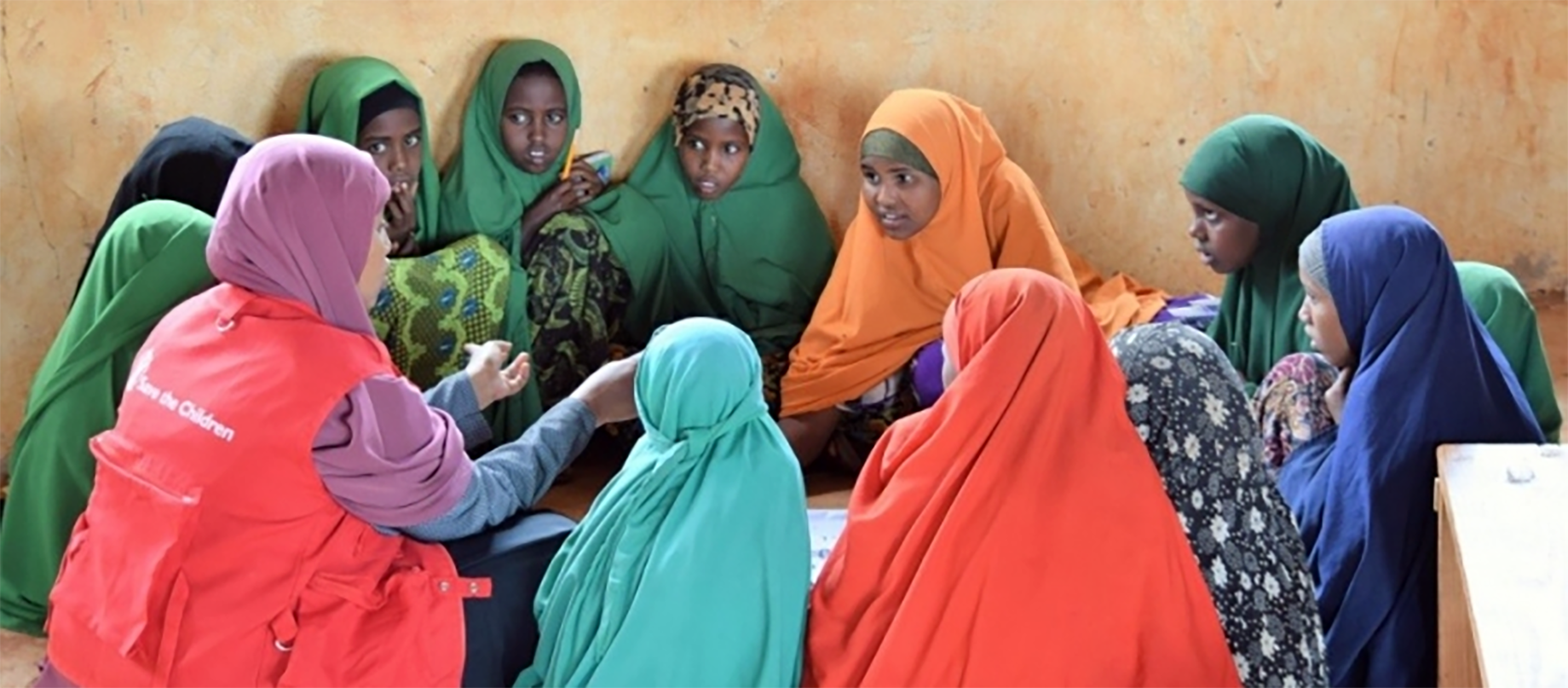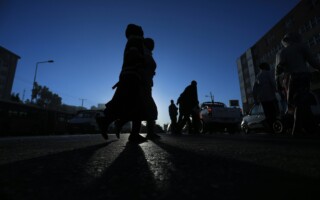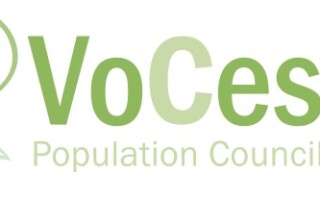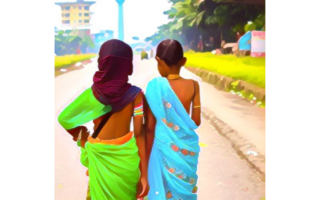
AGI-K evaluated the short- and long-term impact of a multidimensional program for young adolescent girls in marginalized settings in Kenya. The second phase evaluated the impact, feasibility, and scalability of the program being implemented by the county government.
Why it Matters: While nationwide, one in eight women are married as children, in over a dozen counties — in particular in the arid and semi-arid lands — more than one in four are. This is driven by low rates of school enrollment, inequitable gender norms, and poverty.
The Approach:
To keep girls in school, prevent child marriage, and delay adolescent pregnancy, we have been testing a cash-plus, multidimensional program for 11 to 14 year-old girls to understand the short- and long-term effects.
Phase 1:
Using a randomized controlled trial design, AGI-K tested the following four layered packages:
- Violence Prevention, which included community dialogues on the prevalence and persistence of violence against girls, coupled with funded community projects to address these challenges.
- Violence Prevention + Education, which also includes a cash transfer conditional on school enrollment at the start of each term and regular attendance throughout the term.
- Violence Prevention + Education + Health, in which girls meet in safe space groups once a week with a female mentor who delivers a health, life skills, and nutrition curriculum.
- Violence Prevention + Education + Health + Wealth Creation, in which girls also participate in additional financial education sessions integrated into the “safe space” curricula and open savings accounts or home banks.
At end of the two-year program, AGI-K results show positive impacts for girls across a broad range of health, social, educational, and financial indicators. More so, two and four years after the program, for girls who were out of school when the program started, there were sustained impacts on school enrollment, as well as large delays in marriage and pregnancy.
Phase 2:
Based on the strong, positive impacts from Phase 1, the Wajir County government was interested in absorbing the program. A second randomized controlled trial evaluated the impact of a streamlined version of the program, implemented through county infrastructure with support from Population Council. The study tested three packages:
- Community conversation (CC) groups focused on inequitable gender norms and the value of girls’ education implemented by Community Health Assistants, coupled with girls’ empowerment groups (GEG) covering health, life skills, and financial education curricula implemented by community health volunteers;
- CC + GEG + a one-time cash transfer to the household of out-of-school girls who re-enrolled, coupled with a community incentive if the whole village attained a certain level of girls’ school enrollment; and
- CC + GEG + household cash transfers conditioned on girls’ school enrollment, with girls who were out of school when the program started receiving KES 9000 over four payments and in-school girls receiving KES 4500 over two payments.
After 16 months, the evaluation results showed that half of girls who were out of school in the packages with the cash incentives were enrolled in school.
AGI-K is still being implemented at a small scale in Wajir County as PC-Kenya and partners explore how to support a full scale up in Wajir and expansion to additional counties in Kenya with similar levels of school enrollment, child marriage, and adolescent pregnancy.
The Big Picture: A multidimensional approach, implemented in early adolescence, is able to keep girls in school in the short term, leading to long-term impact on school enrollment, as well as delaying marriage and birth. In addition, the county government is able to lead and implement the program and achieve similar levels of impact — laying the groundwork for scale up of the approach.
Partners:
- APHRC,
- Save the Children,
- Wajir County Government (in the past Plan International, Itad)
Funders:
- UK Foreign and Commonwealth Development Office (FCDO)
- Elrha, Children’s Investment Fund Foundation




